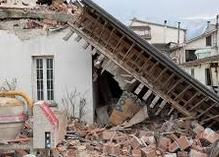The first thing we are going to do, before entering fully into the meaning of the term victim that concerns us now, is to discover its etymological origin. In this case, we can state that it is a word that derives from Latin, exactly the result of the sum of several components of said language:
-The noun “damnum”, which is synonymous with “punishment” or “condemnation”.
-The verb “facere”, which can be translated as “to make”.
Synonyms for victim are affected, victim, damaged, injured or harmed, among others. On the other hand, the antonyms of that term include intact, undamaged or even unharmed.
Damaged is an adjective used to describe someone who suffered significant harm . The term derives from the verb damage : to cause damage (a detriment, an impairment or an injury).
 For example: “The government announced that it will provide a subsidy to those affected by the floods,” “The intentional fire caused hundreds of families to be affected,” “The neighbor affected by the collapse asked the municipal authorities for help.”
For example: “The government announced that it will provide a subsidy to those affected by the floods,” “The intentional fire caused hundreds of families to be affected,” “The neighbor affected by the collapse asked the municipal authorities for help.”
According to the dictionary of the Royal Spanish Academy ( RAE ), the victims are people who suffer a collective deterioration. If a flood occurs in a city, to cite one case, the damage will be collective: there will be hundreds or thousands of victims. The same will happen if there is a high intensity earthquake . In these cases, it is common for solidarity campaigns to be carried out to collaborate with the victims, collecting donations of non-perishable food, drinking water, clothing, etc.
When natural disasters occur, it is important to keep a record as detailed as possible of the number of people affected by them. And it is the way not only to know how many people have been harmed by these catastrophes but also the aid, material and human, that is necessary to support them.
Specifically, this “count” of victims is included in what is known as a disaster evaluation. This is the set of actions that allow us to determine the impact that this catastrophe has had as well as the priorities and immediate needs that exist in order to save the lives of the people who have managed to survive, the possibilities of facilitating recovery as soon as possible and the resources available. This is how we will be able to act in the face of this disaster in the most effective and efficient way possible.
In everyday language, however, the adjective harmed is usually used even when there is only one person harmed and the damage is not that serious. If a person cannot get his car out of the garage of his house because a garbage collection truck has parked right at the door, it can be said that he is a man affected by the situation.
In some legislations, there is the figure of the injured individual . That individual who feels offended by a crime that generates public action has the right to constitute himself in the corresponding process as an injured individual. For this you must make a written presentation.
